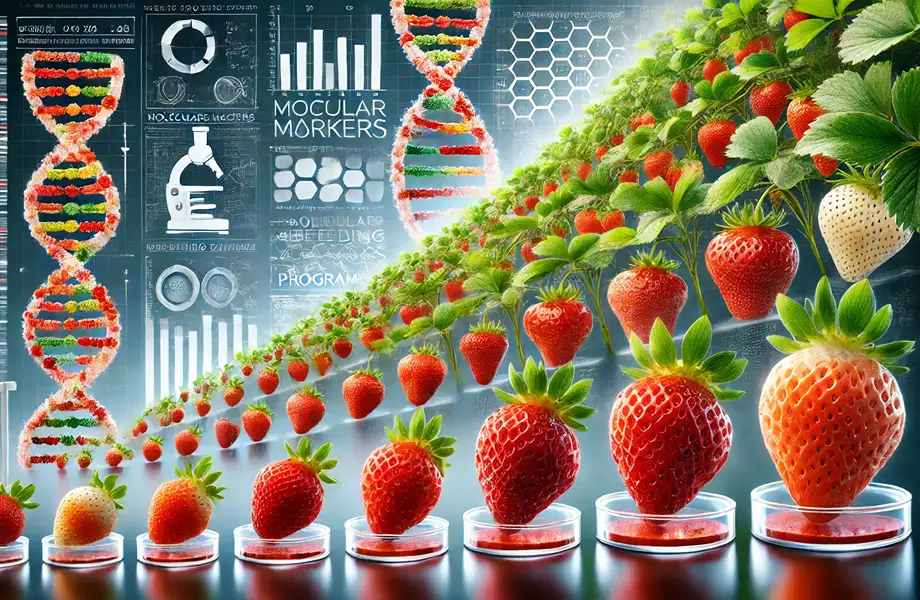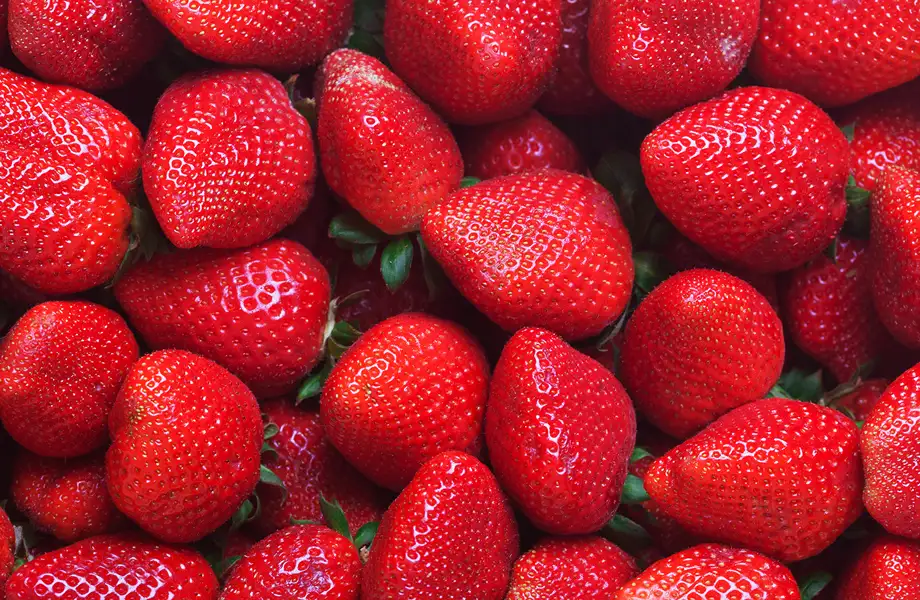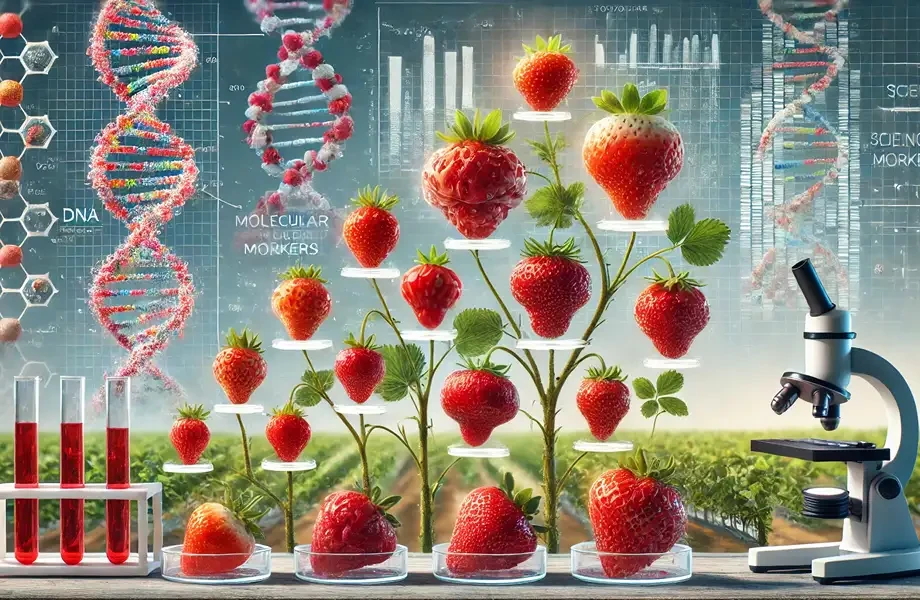A new study published in the journal «Horticulture Research» identifies key genetic markers and candidate genes for breeding better strawberries.
Supported by the EU-funded BreedingValue project, the study explores the genetic evolution of strawberry diversity over the last 160 years, identifying molecular markers for breeding programs aimed at producing brighter, juicier, and longer-lasting strawberries.
The cultivated strawberry, the most consumed berry worldwide, originated in France in the 18th century from the spontaneous hybridization of two strawberry species imported from the New World. Since then, scientists have continuously worked to improve the fruit while maintaining its genetic diversity and enhancing traits like firmness and flavor.
Another focus area has been extending shelf life and reducing post-harvest rot, both linked to fruit firmness and other surface properties.
New Genetic Markers, Better Strawberries
While traditional breeding methods have struggled to balance genetic diversity with improved fruit quality, advances like genome-wide association studies (GWAS) offer new opportunities.
Using GWAS, researchers from BreedingValue’s French partners, the National Research Institute for Agriculture, Food, and the Environment (INRAE) and the Invenio research center, have now discovered key genetic markers linked to qualitative traits such as fruit weight, firmness, and shine.

The team identified 71 associations with 11 different quality traits, validating known markers such as firmness and sugar content and uncovering new quantitative trait loci.
Three out of six selective sweeps identified are associated with fruit shine and skin durability, key traits for fruit attractiveness and post-harvest shelf life.
The findings indicate substantial improvements in major breeding targets, including fruit weight, firmness, composition, and appearance, observed across both European and American cultivars.
Researchers also noted a decline in genetic diversity in some chromosomal regions due to selection pressure, highlighting the impact of breeding on genetic variation.

The study, supported by the BreedingValue project (Pre-breeding strategies for obtaining new resilient and added value berries), has the potential to bring significant changes to strawberry breeding programs.
Growers can use the newly identified genetic markers to select traits that enhance fruit quality, producing strawberries with longer shelf life without compromising color and flavor.
Study author and senior scientist at INRAE, Dr. Béatrice Denoyes, states in a press release published on «EurekAlert!»: “This study provides a comprehensive view of strawberry genetic diversity and its impact on fruit quality. Identifying new genetic markers will significantly aid breeding programs focused on improving fruit traits that are crucial for both growers and consumers.”
Photo: kues1







